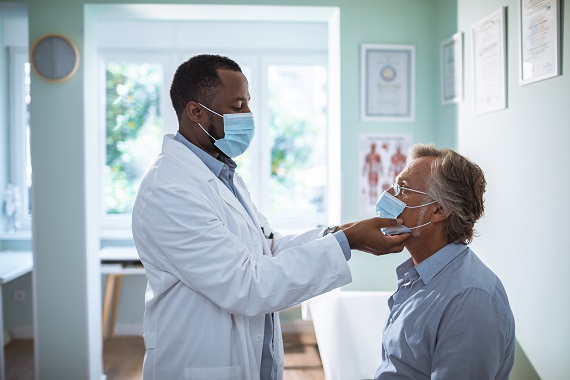Maintaining good health is one of the most important investments you can make in your life. But navigating the healthcare system can be overwhelming without proper guidance. This is where primary care physicians (PCPs) play a crucial role. Often described as the first point of contact in healthcare, they are trusted medical professionals who provide comprehensive care, focusing on prevention, diagnosis, and treatment of common health issues.
What Is a Primary Care Physician?
A primary care physician is a doctor who specializes in general health care. They focus on overall wellness and are trained to handle a wide range of medical concerns. Unlike specialists who treat specific conditions or body parts, PCPs take a holistic approach, looking at the “big picture” of your health.
There are different types of primary care physicians, including:
- Family Medicine Doctors – Provide care for individuals of all ages, from infants to seniors.
- Internal Medicine Doctors – Specialize in adult health and management of chronic diseases.
- Pediatricians – Focus on the health and development of children and adolescents.
- OB/GYNs – Offer women’s health services and may act as primary care providers for women.
- Geriatricians – Specialize in the care of older adults.
The Role of a Primary Care Physician
Your PCP serves as your healthcare coordinator, helping you navigate your medical journey. Their responsibilities include:
1. Preventive Care and Wellness
Preventive care is a cornerstone of primary care. Regular check-ups, vaccinations, and screenings help detect health issues early, when they are easiest to treat.
Examples include:
- Blood pressure and cholesterol checks
- Cancer screenings (like mammograms or colonoscopies)
- Immunizations for flu, tetanus, and other preventable diseases
By focusing on prevention, your PCP helps you stay ahead of potential health problems and promotes long-term wellness.
2. Diagnosis and Treatment
When you experience new or unexplained symptoms, your primary care doctor is often the first person you see. They evaluate your symptoms, perform physical exams, and may order lab tests or imaging studies. Many conditions, such as infections, mild injuries, or chronic illnesses, can be treated directly by your PCP.
If the issue requires specialized care, your PCP will refer you to the appropriate specialist and remain involved to ensure seamless communication between providers.
3. Managing Chronic Conditions
For individuals living with long-term conditions like diabetes, heart disease, asthma, or arthritis, a primary care physician plays a vital role in ongoing management. They help create treatment plans, monitor progress, adjust medications, and provide education on lifestyle changes to keep conditions under control.
4. Coordinating Care
With multiple doctors, treatments, and medications, healthcare can become complex. PCPs act as a central hub, ensuring that all aspects of your care are connected. This coordination minimizes confusion, avoids duplicate tests, and reduces the risk of medical errors.
Benefits of Having a Primary Care Physician
Building a relationship with a primary care physician offers numerous advantages:
- Personalized Care – Your PCP knows your health history, lifestyle, and preferences, allowing them to tailor care specifically to you.
- Early Detection – Regular visits help catch potential problems before they become serious.
- Cost Savings – Preventive care and early intervention reduce the need for expensive emergency room visits or hospital stays.
- Peace of Mind – Knowing you have a trusted doctor to turn to provides reassurance and confidence in your healthcare decisions.
- Continuity of Care – Over time, your PCP develops a deep understanding of your health, which improves the quality of care you receive.
When to See a Primary Care Physician
You should schedule regular visits with your PCP, even when you feel healthy. Annual check-ups are essential for tracking your overall well-being. Additionally, you should contact your primary care physician when you experience:
- Persistent fever or cough
- Sudden changes in weight
- Ongoing fatigue or weakness
- Skin changes or unusual growths
- Chronic pain or discomfort
- Worsening symptoms of an existing health condition
How to Choose the Right Primary Care Physician
Finding the right PCP is a critical step in your healthcare journey. Consider the following factors:
- Credentials and Experience: Verify their education, training, and areas of expertise.
- Location and Accessibility: Choose a doctor whose office is convenient to reach.
- Communication Style: Look for someone who listens carefully and explains things clearly.
- Insurance Coverage: Ensure they are in-network with your health insurance plan.
- Patient Reviews: Read feedback from other patients to gauge satisfaction and trust.
The Importance of Preventive Care
Primary care physicians emphasize preventive medicine, which can help you live a longer, healthier life. Simple actions like blood pressure checks, lifestyle counseling, and vaccinations can significantly reduce the risk of chronic diseases such as heart disease, diabetes, and certain cancers.
By working closely with your PCP, you take a proactive role in your health instead of waiting for problems to arise.
Conclusion
Primary care physicians are the foundation of a strong healthcare system and play a vital role in maintaining your overall well-being. They provide comprehensive services—from preventive care and early diagnosis to chronic condition management and care coordination.









